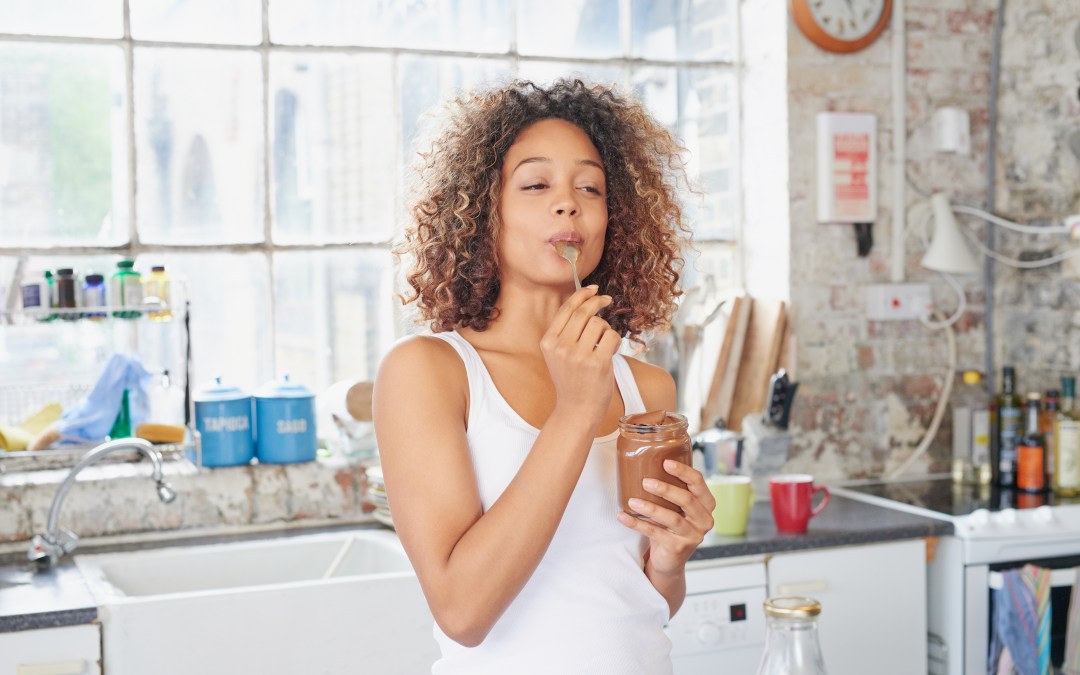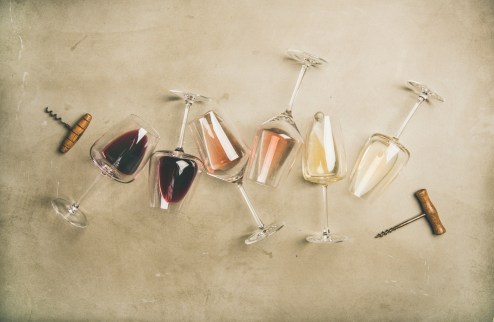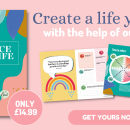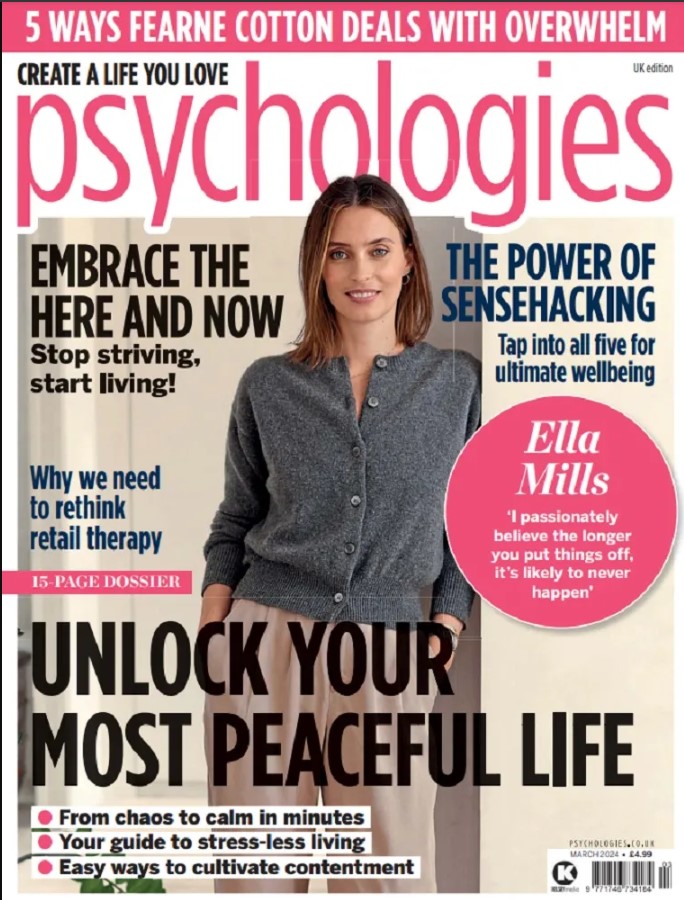The secrets of moderation
Ever wondered why your resolve to have ‘just the one’ glass of wine or chocolate biscuit never seems to hold? Heidi Scrimgeour shares her quest to learn the secrets of moderation

Saint Augustine wrote that complete abstinence is easier than perfect moderation. Having just sailed through a month of not drinking alcohol – even bypassing a glass of bubbly on my firstborn’s birthday – I can attest that he was right: it is easier to give up booze altogether than drink in moderation.
But this unsettles me. I had a ‘dry’ month because I didn’t feel in complete control of my alcohol consumption. Buying a bottle of wine on a Friday night had gradually turned into three-bottles-for-£10 every week and, instead of my former ‘only drink on weekends’ rule , I had begun to consider myself virtuous if I had three alcohol-free nights per week.
Understanding your vices
And it’s not just alcohol; the failure of the ‘off’ switch is a familiar feature in my life. At book club, friends slide the nibbles discreetly out of reach so as not to overindulge, whereas I shuffle closer to the table and get stuck in. Our house is a strictly biscuit-free zone, because my brain sees an open packet as enticement to scoff the lot. I’ve had to stockpile my children’s favourite chocolate bars, so I can replenish their stash after one of my regular raids, such is my inability to say ‘no’ to anything consumable with soothing properties – even if it isn’t mine.
Scoring ‘highly addictive personality type’ on a recent psychological test did little to allay my fears but, at the same time, I knew I wasn’t an alcoholic. So, why does moderation elude me?
Richard Renson, a psychodynamic therapist and addiction consultant, explains why abstinence can be easier than moderation. ‘The chemicals in your brain react as soon as you put a substance in your mouth, creating a euphoric or endorphin experience, which triggers a craving for more. You don’t have to be addicted to something to have that “Once I start, I can’t stop’’ feeling.’
Whether your vice is chocolate or alcohol, understanding why you turn to it can help. Renson advises ‘looking at your life holistically’ to identify points of stress, and considering how you use alcohol or food to modify how you feel.
Tracking motivations
I started to monitor my consumption moods and feelings. That first Friday, I opened a bottle of Prosecco and drank most of it myself. Granted, it was over the course of several hours and with an elaborate dinner in between, so I wasn’t drunk, but the following day it seemed excessive and I wrestled with familiar feelings of failure and regret.
Replaying Renson’s words about drinking to mitigate stress, I realised that I had opened the bottle impulsively after fruitless hours spent searching online for an affordable family holiday and as I tackled a backlog of emails that had been hanging over me all week. Resentment about working on a Friday night was compounded by the sense that a holiday shouldn’t feel like a pipe dream, given the hours I put into my business. There’s nothing wrong with having a glass of wine under those circumstances, but instead of soulfully savouring a drink to unwind, I was drowning my sorrows.
That’s the wrong frame of mind for moderation – my inner voice was whispering, ‘Two glasses is plenty’, but that was muffled by a much louder one saying, ‘You’ve earned this, have another.’
Stephanie Chivers is a habit and addiction specialist and author of There Is No Magic Button: The Essential Guide To Hacking Your Bad Habits Or Addictions (ichange21, £7.99). She explains that a critical step to mastering moderation is learning not to drink – or open the biscuit tin – in response to emotional triggers. ‘It’s important to become aware of your emotions and notice what you’re feeling throughout the day. What has angered or frustrated you?’ As we consciously try to stop acting on those feelings, we can learn healthier habits. ‘Instead of drinking on your emotions or self-soothing with a packet of biscuits, go for a walk or a swim, call a friend or listen to music until the difficult feelings pass.’
It sounds simplistic, but it really works. We had friends round for Sunday lunch and a second bottle of wine was left open, but untouched. As the prospect of another evening of working late loomed over me, alongside putting three children to bed, I reached to pour myself a glass. Then I paused, recalling Chivers’s advice to resist drinking in response to emotional triggers.
I’d already had one glass of wine with lunch, so here was the perfect opportunity to practise moderate drinking. Acknowledging the stress I felt, I bolstered myself with a cup of tea and a quiet moment alone in the kitchen. Then I tackled the evening’s challenges with a clear head and a sense of breakthrough.
I realised that a sense of entitlement often propels me towards the wine rack. What’s wrong with rewarding myself after a day of work/life juggling? Except, drinking in this way is a hindrance, not a help. It masks emotions that are best addressed, instead of numbed with alcohol.
The next day, the sight of the untouched bottle of wine made me feel virtuous. Chivers says these small successes get us ‘out of the cycle of feeling like a failure because we’ve overdone it’. With her help, I drew up rules of engagement for the thing I had been using compulsively to ease stress or manage difficult emotions.
Taking control
The simplest of these rules has proved to be the most powerful, transforming my grasp of moderation more than anything else: I resolved to only ever have a drink if I don’t feel like I need one. This means making a cup of tea when I’m craving a cold beer, or listening to music when a bad day makes me feel like opening the Muscadet. But it also means occasionally pouring myself a glass of wine or opening the biscuits when those are the last things on my mind.
It felt odd at first. But, a few days after I resisted that open bottle of wine while cooking dinner, I noted that I wasn’t feeling stressed or overwhelmed. So, I tentatively put my new rule to the test and poured myself a glass of wine. For the first time in a while, that one glass finally felt like enough. From there – one glass of wine, chocolate bar or biscuit at a time – moderation is a virtue that I am mastering at last.
Photograph: iStock









